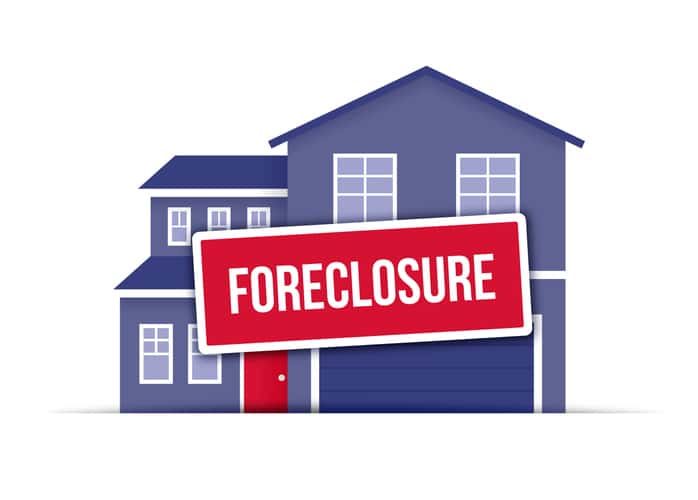Feb. 9, 2023 (Staff Writer)- ATTOM, a leading curator of land, property, and real estate data, today released its January 2023 U.S. Foreclosure Market Report, which shows there were a total of 31,557 U.S. properties with foreclosure filings — default notices, scheduled auctions or bank repossessions – up 36 percent from a year ago, and up 2 percent from the prior month.
“The uptick in overall foreclosure filings nationwide points toward a trend that may suggest more increased activity is on the horizon as we enter the new year,” said ATTOM CEO Rob Barber.” While both completed foreclosures and foreclosure starts have stalled slightly over the past month, the annual increase in overall activity seen over the past 21 months may indicate a more substantial trend that could continue into 2023.”
Lenders repossessed 3,896 U.S. properties through completed foreclosures (REOs) in January 2023, up 6 percent from last month but down 19 percent from last year – the first annual decrease in completed foreclosures since June 2021.
States that had at least 100 or more REOs and that saw the greatest annual decreases in January 2023 included: Florida (down 53 percent); Maryland (down 23 percent); Michigan (down 22 percent); New Jersey (down 15 percent); and Texas (down 14 percent).
Counter to the national trend, only 3 states with 100 or more REOs in January 2023 saw an annual increase, including: New York (up 76 percent); Pennsylvania (up 12 percent); and California (up 4 percent).
Those major metropolitan statistical areas (MSAs) with a population greater than 200,000 that saw the greatest number of REOs included: Detroit, MI (783 REOs); Chicago, IL (206 REOs); New York, NY (149 REOs); Philadelphia, PA (100 REOs); and Riverside, CA (66 REOs).
Nationwide one in every 4,425 housing units had a foreclosure filing in January 2023. States with the highest foreclosure rates were Delaware (one in every 2,109 housing units with a foreclosure filing); Illinois (one in every 2,279 housing units); Michigan (one in every 2,617 housing units); New Jersey (one in every 2,858 housing units); and Maryland (one in every 2,967 housing units).
Among the 223 metropolitan statistical areas with a population of at least 200,000, those with the highest foreclosure rates in January 2023 were Fayetteville, NC (one in every 1,322 housing units with a foreclosure filing); Bakersfield, CA (one in every 1,522 housing units); Cleveland, OH (one in every 1,557 housing units); Detroit, MI (one in every 1,575 housing units); and Laredo, TX (one in every 1,953 housing units).
Other than Cleveland and Detroit, among the metropolitan areas with a population greater than 1 million, those with the worst foreclosure rates in January 2023 included: Chicago, IL (one in every 2,074 housing units); Riverside, CA (one in every 2,123 housing units); and Las Vegas, NV (one in every 2,341 housing units).
Foreclosure starts increase monthly in 31 states including the District of Colombia. Lenders started the foreclosure process on 20,752 U.S. properties in January 2023, down 1 percent from last month but up 75 percent from a year ago.
Those states that saw the greatest number of foreclosures starts in January 2023 included: California (2,513 foreclosure starts); Texas (2,136 foreclosure starts); Florida (1,725 foreclosure starts); New York (1,375 foreclosure starts); and Illinois (1,309 foreclosure starts).
Among those major metropolitan statistical areas with a population of at least 200,000, those with the greatest number of foreclosure starts in January 2023, included: New York, NY (1,370 foreclosure starts); Chicago, IL (1,156 foreclosure starts); Los Angeles, CA (774 foreclosure starts); Houston, TX (629 foreclosure starts); and Philadelphia, PA (612 foreclosure starts).
Report methodology
The ATTOM U.S. Foreclosure Market Report provides a count of the total number of properties with at least one foreclosure filing entered into the ATTOM Data Warehouse during the month and quarter. Some foreclosure filings entered into the database during the quarter may have been recorded in the previous quarter. Data is collected from more than 3,000 counties nationwide, and those counties account for more than 99 percent of the U.S. population. ATTOM’s report incorporates documents filed in all three phases of foreclosure: Default — Notice of Default (NOD) and Lis Pendens (LIS); Auction — Notice of Trustee Sale and Notice of Foreclosure Sale (NTS and NFS); and Real Estate Owned, or REO properties (that have been foreclosed on and repurchased by a bank). For the annual, midyear and quarterly reports, if more than one type of foreclosure document is received for a property during the timeframe, only the most recent filing is counted in the report. The annual, midyear, quarterly and monthly reports all check if the same type of document was filed against a property previously. If so, and if that previous filing occurred within the estimated foreclosure timeframe for the state where the property is located, the report does not count the property in the current year, quarter, or month.
About ATTOM
ATTOM provides premium property data to power products that improve transparency, innovation, efficiency and disruption in a data-driven economy. ATTOM multi-sources property tax, deed, mortgage, foreclosure, environmental risk, natural hazard, and neighborhood data for more than 155 million U.S. residential and commercial properties covering 99 percent of the nation’s population. A rigorous data management process involving more than 20 steps validates, standardizes, and enhances the real estate data collected by ATTOM, assigning each property record with a persistent, unique ID — the ATTOM ID. The 30TB ATTOM Data Warehouse fuels innovation in many industries including mortgage, real estate, insurance, marketing, government and more through flexible data delivery solutions that include bulk file licenses, property data APIs, real estate market trends, property navigator and more. Also, introducing our newest innovative solution, that offers immediate access and streamlines data management – ATTOM Cloud.















